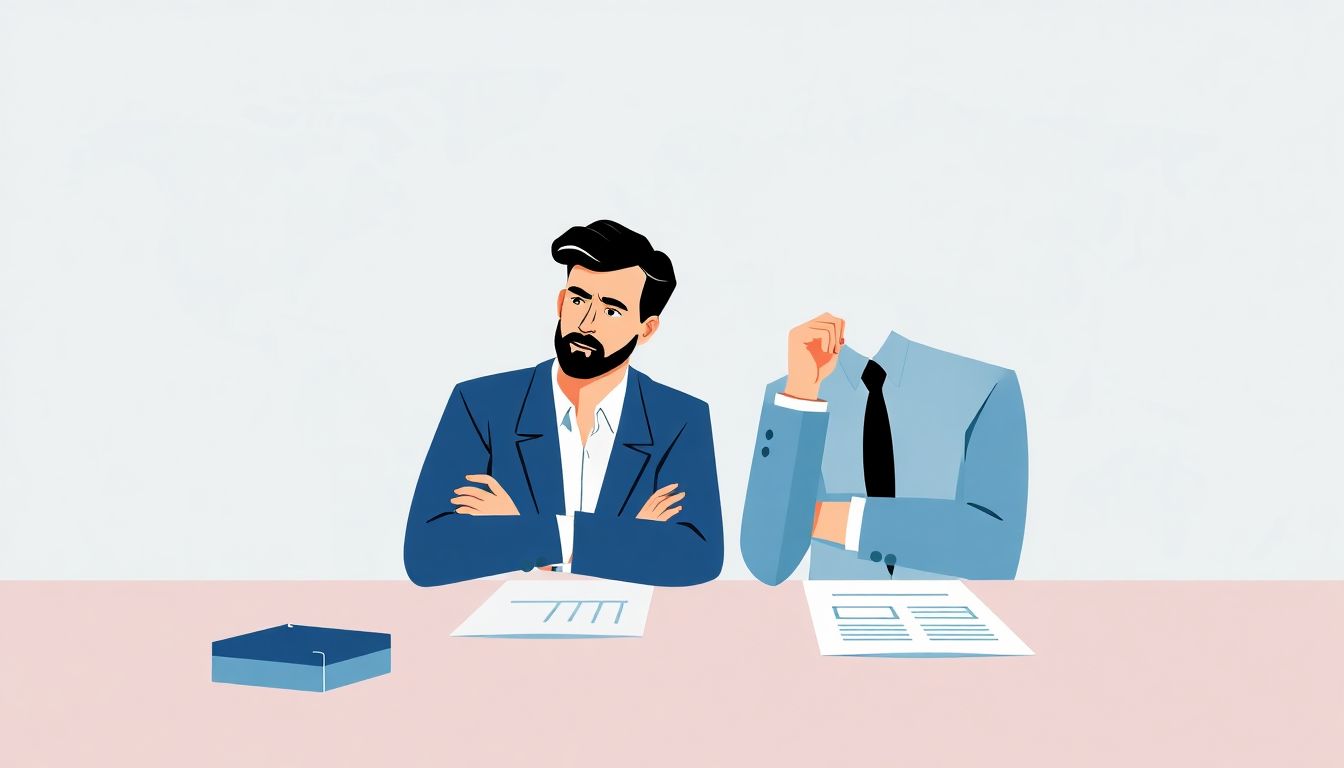International negotiations can feel like walking a tightrope, right? With cultural nuances, language barriers, and differing priorities, it’s no wonder many people find them daunting. You’re definitely not alone in feeling this way!
But don’t worry, I’ve got your back! If you stick around, I’ll share some clever ChatGPT prompts that will help you tackle these challenging negotiations with confidence and finesse.
From prepping for various scenarios to role-playing and analyzing outcomes, you’ll find actionable tips to elevate your negotiation game. Let’s dive in and unlock the power of ChatGPT together!
Key Takeaways
- Use specific ChatGPT prompts to prepare for international negotiations, focusing on cultural nuances and negotiation strategies.
- Role-play negotiations with ChatGPT to build confidence and practice responses in diverse scenarios.
- Analyze past negotiation outcomes to learn from successes and failures, encouraging continuous improvement.
- Create custom prompts by defining the negotiation context and including relevant cultural elements for better insights.
- Leverage additional resources like books, online courses, and podcasts to enhance your international negotiation skills.

Best Prompts for International Negotiation in ChatGPT
When you’re preparing for international negotiations, the right prompts can help you strategize and communicate effectively.
Here are some top prompts you can use with ChatGPT:
- “Generate a list of common cultural misunderstandings in international negotiations.”
- “Provide negotiation techniques that work best across different cultures.”
- “What are the key factors to consider when negotiating with [Country Name]?”
- “Create a checklist for effective communication during international negotiations.”
- “Summarize the negotiation styles of [Country A] vs [Country B].”
How to Use ChatGPT for Effective Negotiation Strategies
Using ChatGPT to enhance your negotiation strategies is quite simple and can make a significant difference.
Start by asking ChatGPT specific questions about negotiation tactics tailored to your scenario.
Here are some actionable steps to leverage ChatGPT effectively:
- Identify the negotiation context and set clear objectives.
- Ask ChatGPT to provide insights into the interests and needs of the other party.
- Request tips on creating win-win solutions that include both parties’ interests.
- Simulate potential negotiation dialogues to practice your responses.
For instance, type “What questions should I ask to understand the other party’s position better?”
Prompts to Prepare for International Negotiation Scenarios
Preparation is key to successful negotiations, especially on an international level.
Here are some prompts to guide your ChatGPT sessions:
- “Outline a negotiation plan for a deal with a [specific country].”
- “Simulate a negotiation for a joint venture in the tech industry.”
- “What are the top three negotiation risks when working with [specific culture]?”
- “Describe a case study of a successful international negotiation.”
- “Generate questions to ask during a pre-negotiation meeting.”
Examples of ChatGPT Prompts for Cross-Cultural Communication
Cross-cultural communication is critical in international negotiations to avoid pitfalls and misunderstandings.
Here are practical prompts you can utilize:
- “How do cultural norms influence negotiation styles in [specific country]?”
- “List important cultural etiquette to observe in negotiations with [specific culture].”
- “Provide examples of effective communication techniques for diverse backgrounds.”
- “Explain the significance of body language in negotiations across cultures.”
- “What are some common phrases that can be used respectfully in [language]?”
These prompts can enhance your understanding of necessary nuances in different cultural contexts.

Using ChatGPT to Role-Play Negotiation Situations
Role-playing negotiation scenarios can significantly enhance your skills and confidence.
By simulating real-life situations, you can practice responses and refine strategies.
Here are some effective prompts to guide your role-playing sessions with ChatGPT:
- “Simulate a negotiation between a supplier and a buyer from different countries.”
- “Role-play a salary negotiation in a cross-cultural context.”
- “Create a dialogue where a mediator helps two parties reach a contract agreement.”
- “Practice negotiation objections that could arise during a deal with an international partner.”
- “Outline a potential negotiation scenario about environmental regulations with a foreign company.”
These prompts can help you experience diverse negotiation dynamics and build your adaptability.
Prompts for Analyzing Negotiation Outcomes with ChatGPT
Analyzing negotiation outcomes is crucial for growth and improvement in future situations.
ChatGPT can assist you in evaluating your performance and learning from experiences.
Consider these prompts for effective analysis:
- “Evaluate the key factors that led to a successful negotiation outcome in [specific case].”
- “Outline the lessons learned from a failed negotiation and offer improvement suggestions.”
- “Analyze common factors in successful international negotiations to incorporate in future deals.”
- “Identify feedback mechanisms to assess negotiation performance with client partners.”
- “Discuss how negotiation outcomes differ when applying various strategies in different cultures.”
Using these prompts, you can gain insights and develop a roadmap for refining your negotiation practices.
Tips for Creating Custom ChatGPT Prompts for Negotiation
Creating effective custom prompts can elevate your negotiation preparation and outcomes.
This involves tailoring your queries to fit specific contexts and goals.
Here are some tips to enhance your custom prompt crafting:
- Define the specific negotiation scenario you want to explore.
- Incorporate specific cultural elements relevant to your negotiation context.
- Utilize open-ended questions to encourage detailed responses from ChatGPT.
- Consider including hypothetical situations to gauge different approaches.
- Refine your prompts based on the feedback you receive to improve future interactions.
For example, if you’re preparing for a negotiation with a Japanese company, a prompt could be: “Describe negotiation strategies that respect Japanese business customs.”
Resources for Improving International Negotiation Skills with ChatGPT
Enhancing your negotiation skills is a continuous journey, and utilizing resources can facilitate this process.
Here are some reliable resources to help enrich your international negotiation expertise:
- “List the top books on negotiation tactics for international business.”
- “Recommend online courses specializing in cross-cultural negotiation skills.”
- “Provide articles that cover the latest trends in international negotiation.”
- “Suggest training programs that focus on negotiation role-plays and simulations.”
- “Curate a list of negotiation podcasts featuring expert interviews and case studies.”
Leveraging these resources alongside ChatGPT can enhance your understanding and application of effective negotiation methods.

Prompts for Analyzing Negotiation Outcomes with ChatGPT
Analyzing the outcomes of negotiations is key to improving your future performance.
ChatGPT can guide you in evaluating your results, identifying strengths and weaknesses, and applying those insights moving forward.
Here are some practical prompts you can use:
- “Analyze the outcomes of my recent negotiation with [insert party’s name] and suggest improvements.”
- “Identify the key factors that contributed to a successful negotiation with [specific culture] in the last deal.”
- “Evaluate my negotiation performance using a specific negotiation framework.”
- “Discuss how cultural differences impacted the outcomes of my negotiation with [insert country].”
- “Help me create an action plan for improving negotiation skills based on my past performance.”
Tips for Creating Custom ChatGPT Prompts for Negotiation
Creating effective custom prompts is essential to maximizing your use of ChatGPT for negotiations.
Tailoring your prompts can lead to more relevant and actionable responses from the model.
Here are some tips to consider while crafting your prompts:
- Be specific about the negotiation scenario you have in mind.
- Incorporate relevant cultural nuances to get context-rich suggestions.
- Use open-ended questions to receive comprehensive answers rather than simple yes or no responses.
- Experiment with hypothetical situations to explore multiple negotiation strategies.
- Refine your prompts based on previous interactions to get the most out of ChatGPT.
Resources for Improving International Negotiation Skills with ChatGPT
Improving your negotiation skills takes time and effort, and there are numerous resources available to assist in this journey.
ChatGPT can direct you to valuable materials to enhance your skill set for international negotiations.
Here are some useful prompts to guide your search for quality resources:
- “Recommend must-read books on international negotiation techniques.”
- “Find online courses that focus on cross-cultural negotiation skills.”
- “List reputable articles that discuss current trends in international negotiation.”
- “Suggest workshops or seminars that provide hands-on negotiation training.”
- “Curate a selection of negotiation podcasts that feature expert insights and case studies.”
FAQs
Effective prompts can include scenarios like “How would you negotiate a trade deal between Country A and Country B?” or “What cultural considerations should be addressed in this negotiation?” These help simulate real negotiation contexts.
To role-play, set up scenarios by providing context and roles. For instance, ask ChatGPT to act as a foreign negotiator and guide it to respond as needed. This creates a dynamic, interactive training experience.
Start by defining your negotiation goals, the context, and specific roles. Keep prompts clear and concise to guide ChatGPT effectively. Test and refine them for better outcomes during practice sessions.
ChatGPT can assist by summarizing negotiation outcomes, identifying key points of success or failure, and suggesting improvements. Input previous negotiation transcripts for critical analysis and constructive feedback on strategies used.
